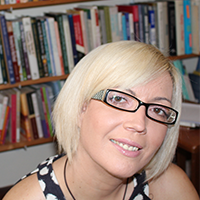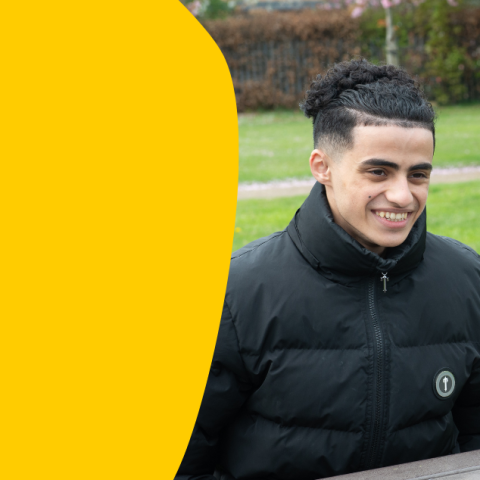Mindfulness
Thinking of dabbling in mindfulness but not sure where to start? Take a look at this list of short practical exercises you can try.

Dr Ann-Marie Golden, an experienced health psychologist, cognitive scientist, therapist and mindfulness facilitator suggests a range of options for newcomers to mindfulness. It takes time and practice, and can be frustrating at first, but as you practice it becomes easier and just taking ten minutes out of your day to calm your mind can bring relief.
Before you get started, take a moment to read Dr Golden’s feature to find out a little more about mindfulness.
-
What is mindfulness?
Mindfulness is a skill you can learn to become aware of what is happening in the present moment without wishing it were different. This involves paying more attention to what is going on inside (your own thoughts and feelings) and the outside world, moment by moment. An important part of mindfulness is noticing how your thoughts are linked to your emotions and behaviour, and reconnected with our bodies and sensations. With mindfulness, we can train ourselves to notice unhelpful thoughts and work on ways to deal with issues more productively.
-
Why should I practice mindfulness?
The aims of mindfulness include:
- To help you understand yourself better
- To improve your mental wellbeing
- To help you cope with your thoughts and feelings
- To help you notice and deal with stress or anxiety better.
Improving your mental wellbeing can help with your physical health too. Depression and anxiety in people with CF can lead to poor adherence to treatment, sleep issues, decreased appetite, lower lung function, and increased hospitalisation.
-
How to be more mindful
Set aside a regular time of the day, preferably in the same place. Sit comfortably upright and close your eyes with the intention of having an alert mind. Notice how your thoughts come and go in your mind. When you notice your mind starts to wander, try and let these thoughts go and shift your attention to an ‘anchor of awareness’. This could be:
- Physical: notice any physical sensations in your body; if you feel discomfort, go to that location and be curious about what it feels like – describe it to yourself and notice that if you stay with it for a few seconds it may subtly change.
- Breathe: focus your attention on your breathing, your inhale and your exhale, and notice where it feels strongest – is it the tip of your nose, back of your throat, in your chest or your stomach? Count your breaths in and out, as far as five or ten, then start again.
- Sounds: consider sounds in the environment around you: whether they are close or far away, which ones you like more than others. Be curious about their properties like pitch and rhythm.
- Emotions: shift your attention to your current feelings/emotions; ask yourself “How do I feel right now, in this moment?” and name your feelings.
- Movement: walk mindfully and slowly, perhaps taking a few paces forwards and a few back, noticing your weight on your feet or stretching and focussing on which muscles are being used and how they feel before and after each stretch.
- Music: pick a song, any genre, and pay full attention to the sound of the music: how it changes, its beat, rhythm and tone, and how the lyrics can have an effect in that moment.
- Writing: write a stream of consciousness, perhaps by hand – you may be surprised by the outcome.
Noticing
Practice a pause. Stop and notice what is going on in this moment with a friendly curiosity, just for a few seconds or minutes. You might do this during a routine activity such as eating a meal, waiting in a shop queue, while the kettle is boiling, or while brushing your teeth. Ask yourself “What is going on for me at the moment?” or “What am I noticing right now?”.
Remember, it’s about noticing, not analysing or trying to change anything you don’t like.
Beginner’s mind
This practice is about seeing things with fresh eyes and not allowing what we ‘know’ stop us from seeing things as they really are. We tend to take the ordinary for granted, but with practice we can develop ‘beginner’s mind’ and experience the richness of the present moment. For example, next time you sit down to a familiar meal try to imagine it is the first time you are experiencing it. Consider the texture and tastes as though you have never had them before and appreciate the extraordinary in the everyday.
Self-compassion
Each of us has an inner critic that can be rather daunting, telling us we are not good enough or that we are flawed or weak. Consider these phrases and the language you use – if you would not say them to a loved one then intentionally change some of the phrases towards yourself. Ask yourself “What would a kind friend say to me now?” and rebuild your inner critic with those words, instead.
Self-compassion is important for all of these practices, as they won’t come easy at first. It may even seem impossible, but with practice you’ll make progress.
Remember: at the beginning the mind is like an unruly teenager, rather undisciplined and always wanting its own way. This is a training of your attention so every time your attention wanders away it is an opportunity to notice and bring it back.
You can read more about mindfulness on the NHS website and the mental health charity MIND website.
Research we fund
We fund research to tackle some of the most pressing issues in CF today. Find out how your donations are making a difference.
What is CF?
Cystic fibrosis, or CF, affects the lungs, digestive system and other organs. There are around 11,000 people living with it in the UK.
Contact us
Get in touch with us to speak to someone on our Helpline, find out about an event or speak to our press team.

Information and support
We provide free, high-quality information and support to help people with CF live a life unlimited.
